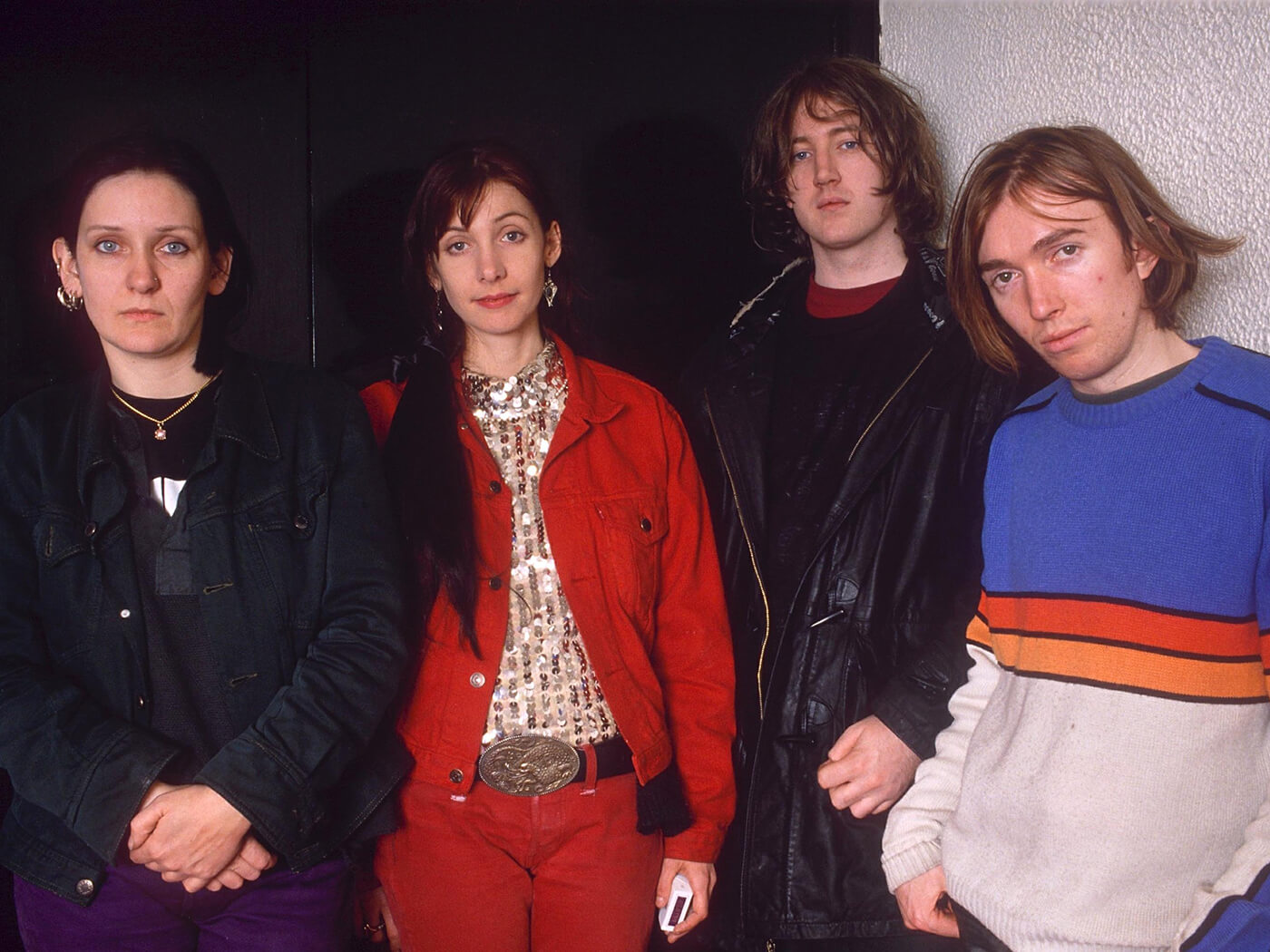
“Magic isn’t about pulling rabbits out of hats,” says Ewen Bremner as Alan McGee, fancying himself the dark lysergic mage of EC1, midway through the recent, regrettable Creation Stories biopic. “But it is about making something materialise.” As if on cue, like the shopkeeper in Mr Benn, Aleister Crowley appears in the loo of a south London squat to inform him that “ideas are everywhere – you only have to reach out and grab one”.
- ORDER NOW: The July 2021 issue of Uncut
- READ MORE: My Bloody Valentine: “We were like the Partridge Family on acid”
Sure enough, downstairs My Bloody Valentine are about to conjure the tremolo vortex sutra of “You Made Me Realise” and secure his label’s lasting legacy. Late-’80s indie isn’t short of magical transformations: Primal Scream from twangling wastrels into ecstatic lords of dance, Pulp from eternal also-rans into cocksure chroniclers of class and romance – but there’s none quite as wondrous as My Bloody Valentine. That the band could release the exquisitely belated jangle pop of “Ecstasy” in November 1987 and then fundamentally shift the entire paradigm of modern music a few months later – it’s enough to make you ponder Faustian pacts on moonlit Kentish Town crossroads.
But magic is also about making things disappear. If your record collection dematerialised at some point over the past decade into the algorithmic ether, then for the past year or so the music of My Bloody Valentine has been keenly unavailable. Although the mundane consequence of contracts and licensing deals, this was arguably the band’s finest trick – as if all the Picassos suddenly disappeared from every gallery on Earth. Amid the present superabundance, when even the KLF have succumbed, there was something magnificent about the band’s abstention, putting us all in the position of McGee hammering on the studio door: where’s the bloody music, Kevin?
Well, here it is at last: Isn’t Anything, Loveless and m b v, plus the compilation of EPs and rare tracks, finally available on all formats for the first time (bootleggers can continue to frack a meagre revenue stream from the pre-Creation material). If you didn’t know already, well here is the mother lode of modern rock, the final revolution in its 20th-century analogue trajectory from riff to reverie. Who could argue that, even with all the resources of digital recording technology, music has gone further out there since way back then?
Inevitably there has been tinkering. You wonder in fact whether Shields, like Jimmy Page with Led Zeppelin, is ever going to be able fully to let these records go, with any subtle shift in his ageing cochlea, development in modern lathe cutting, or imperceptible drift in the atmosphere likely to prompt further reckoning. But this has apparently been largely in the artwork. According to the man himself the new CDs are “pretty much the same that came out in 2012”, the AAA vinyl the same as was issued via their website in 2017, with the new improved vinyl cuts of Isn’t Anything and Loveless made possible “by processing the lacquers within an hour of cutting them”.
Perhaps the greatest gift of having this body of work together at last is allowing us to hear a band, a musician, in transition – emerging and evanescing through time, rather than simply producing the imperial, unsurpassable white elephant of Loveless. There is still so much to rediscover in these records – chiefly perhaps the wonder of Isn’t Anything, the debut 1988 album for Creation, recorded in two week in Wales with Amon Düül II and Hawkwind bass player Dave Anderson. There’s a posthumous tendency to view the record as simply the warm-up for Loveless, the first experiments in rough magic that Shields was to refine to such glorious effect. But it’s worth listening as though this had been the last we heard of MBV, if they hadn’t chanced upon as reckless a gambler as Alan McGee. We might properly appreciate what an astonishing band this was: defined as much by drummer Colm Ó Cíosóig and bass player Deb Googe as by Shields and fellow singer-guitarist Bilinda Butcher. It’s useful to hear the record in the context of the live recordings from the time that have now surfaced on YouTube – notably a November 1988 gig at the Fulham Greyhound (when they were described by Melody Maker’s Chris Roberts as “the most thrilling live group in the country, feasibly the world”), where you can hear the sound materialise, almost second by second, out of the squalid clatter of the late-’80s toilet circuit, out of the influence of Sonic Youth and Hüsker Dü, into something sui generis.
You hear them fade back into clatter – albeit the drum-and-bass skitter of city trains and overhead jets and celestial noospheres – on “Wonder 2”, the closing track from 2013’s implausibly successful comeback, m b v. Shields maintains that the primary influence on his work was always hip-hop, and in particular Hank Shocklee’s production of Public Enemy: how he transmuted the base matter of his environment, from the gridlock blare of streets to the drone of the airwaves, into the holy power of golden noise. With these three albums, Shields has proved himself every bit Shocklee’s equal as a modern alchemist. Here’s hoping he has a few more tricks left up his sleeve.
- Isn’t Anything – 10/10
- Loveless – 10/10
- m b v – 9/10
- EPs ’88–’91 – 8/10





